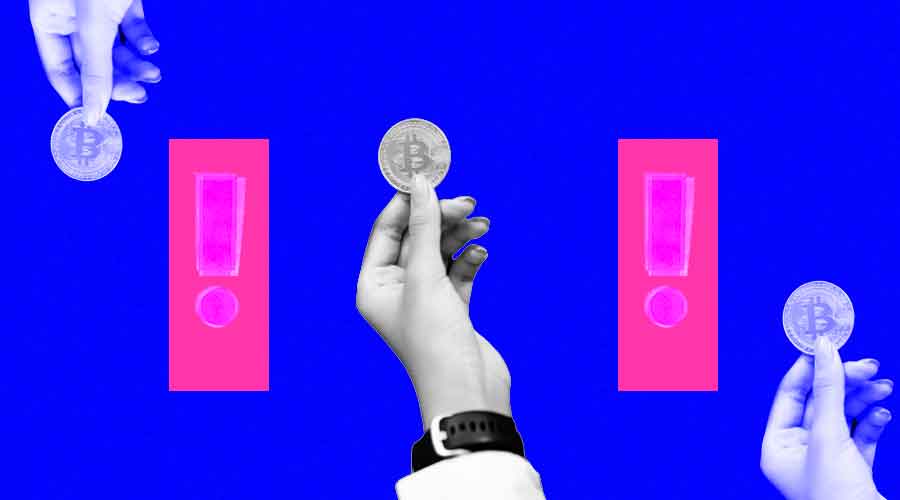 “Altcoin Scams Unveiled: Safeguarding Investments, Recognizing Frauds for Informed Investing”
“Altcoin Scams Unveiled: Safeguarding Investments, Recognizing Frauds for Informed Investing”
INTRO
In the dynamic landscape of cryptocurrency investment, the allure of altcoins beckons investors with promises of innovation and substantial returns. However, this exciting realm has a shadowy side, harboring scams and frauds that can compromise financial security. This article, “Altcoin Scams Unveiled,” serves as a beacon for investors navigating the intricate terrain of alternative cryptocurrencies. Delving into the dark side, we unveil common scams such as pump and dump schemes and fake ICOs, shedding light on red flags and due diligence strategies. As the cryptocurrency market evolves, understanding and recognizing frauds become paramount, empowering investors with knowledge to safeguard their investments and make informed decisions in this ever-changing and sometimes treacherous financial frontier.
1. The Allure of Altcoins
Altcoins, referring to any cryptocurrency other than Bitcoin, have gained popularity due to their potential for significant returns and innovative features. While legitimate projects drive this sector, the allure of quick profits has also attracted scammers aiming to exploit unsuspecting investors.
2. Common Altcoin Scams
Pump and Dump Schemes: In a pump and dump scheme, the price of an altcoin is artificially inflated (pumped) through false or misleading information. Once the price peaks, the orchestrators sell off their holdings, causing a rapid decline (dump) and leaving other investors with losses.
Fake Initial Coin Offerings (ICOs): ICOs involve fundraising for new cryptocurrency projects. Scammers create fake ICOs, enticing investors with promises of revolutionary technology and high returns. Once funds are raised, the scammers vanish, leaving investors with worthless tokens.
Exit Scams: Some altcoin projects engage in exit scams, where the creators disappear after attracting investments. The project is abandoned, and investors are left with no recourse for recovering their funds.
3. Red Flags for Altcoin Scams
Anonymous Teams: Legitimate cryptocurrency projects are usually transparent about their team members and leadership. Anonymity or a lack of identifiable team members can be a red flag, indicating potential fraudulent intent.
Unrealistic Promises: Scams often involve promises of guaranteed high returns or revolutionary technology that seems too good to be true. Investors should exercise caution when faced with unrealistic claims.
Lack of Whitepaper or Roadmap: A whitepaper is a detailed document outlining the purpose, technology, and goals of a cryptocurrency project. A lack of a whitepaper or a vague roadmap raises suspicions about the legitimacy of the project.
4. Due Diligence for Altcoin Investors
Research the Team: Investigate the background of the project’s team members. Legitimate projects have teams with a proven track record and are willing to showcase their expertise and experience.
Examine the Whitepaper: A comprehensive whitepaper details the technical aspects, goals, and use cases of the altcoin. Investors should carefully read the whitepaper to assess the viability and legitimacy of the project.
Community and Social Presence: Legitimate projects often have active communities and a strong social media presence. Scams may lack genuine community engagement or have fake followers.
5. Regulatory Landscape and Legal Recourse
The regulatory landscape for cryptocurrencies varies globally. Investors should be aware of the legal status of cryptocurrencies in their jurisdiction and understand the available legal recourse in case of fraud. Reporting scams to relevant authorities can contribute to the overall effort to combat fraudulent activities.
6. Safeguarding Investments
Diversification: Instead of putting all funds into a single altcoin, diversify investments across multiple projects. This strategy helps mitigate the risk of significant losses if one investment turns out to be a scam.
Use Reputable Exchanges: Trade altcoins on reputable and well-established cryptocurrency exchanges. Established exchanges typically conduct due diligence on listed projects, reducing the likelihood of scams.
Secure Wallets: Store altcoins in secure wallets, preferably hardware wallets that are not connected to the internet. This precaution minimizes the risk of hacking or unauthorized access to funds.
7. Education and Awareness
Investors should prioritize ongoing education about the cryptocurrency market and stay informed about emerging scams and fraud tactics. Being aware of common red flags and staying updated on industry developments can empower investors to make informed decisions and avoid falling victim to scams.




